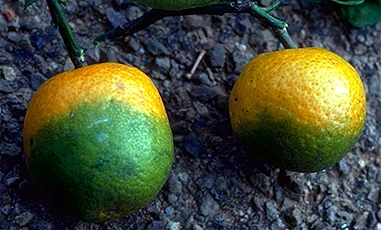
Citrus greening, or Huanglongbing (HLB), is a disease that devastates citrus production all over the world. The culprit behind HLB is the bacterium Candidatus Liberibacter spp. (e.g., CLas), an unculturable pathogen that has proven very difficult to treat. Once a tree is infected, it becomes unproductive and dies within years, costing the global citrus market billions. While current attempts to combat HLB rely on controlling the insect vector, scientists have turned some attention toward the potential of peptides. Their work displayed how antimicrobial peptides show promise for combatting citrus greening, mainly by methods against CLas itself.
Antimicrobial peptides effective against CLas bacteria
With not many current effective options to fight HLB, scientists believe the next area of interest is targeting the CLas secretory pathway using antimicrobial peptides provided by LifeTein. Specifically, the antimicrobial peptides would be blocking the TolC efflux pump protein. The study found three peptides capable of doing this by binding tightly with the TolC receptors and even the β barrel entrance of the protein as well. Treatment with peptides in this manner showed effective inhibition and even mortality in models closely resembling CLas.
The studies displayed using antimicrobial peptides show major promise for future treatment of HLB. With the chemical-resistant bacteria CLas being nearly impossible to slow down, peptides just may have been holding the solution all along. There is hope that new therapies can be developed utilizing the strategies shown, and global citrus production can rest easy after decades of HLB ravaging the farms.
Wang, Haoqi, Nirmitee Mulgaonkar, Samavath Mallawarachchi, Manikandan Ramasamy, Carmen S. Padilla, Sonia Irigoyen, Gitta Coaker, Kranthi K. Mandadi, and Sandun Fernando. 2022. “Evaluation of Candidatus Liberibacter Asiaticus Efflux Pump Inhibition by Antimicrobial Peptides” Molecules 27, no. 24: 8729. https://doi.org/10.3390/molecules27248729
